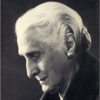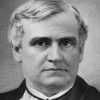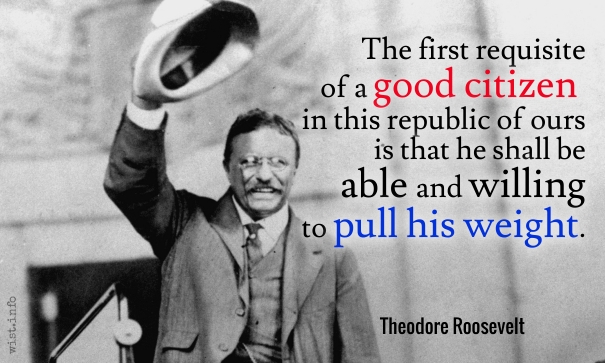I little thought, when the war was finished, that any circumstances could possibly have happened, which would call the General into public life again. I had anticipated that, from this moment, we should have been left to grow old, in solitude and tranquillity, together. That was, my dear madam, the first and dearest wish of my heart; but in that I have been disappointed. I will not, however, contemplate, with too much regret, disappointments that were inevitable. Though the General’s feelings and my own were perfectly in unison, with respect to our predilection for private life, yet I cannot blame him, for having acted according to his ideas of duty, in obeying the voice of his country. The consciousness of having attempted to do all the good in his power, and the pleasure of finding his fellow-citizens so well satisfied with the disinterestedness of his conduct, will doubtless be some compensation for the great sacrifices, which I know he has made.
Martha Washington (1731-1802) American socialite, wife of George Washington, First Lady (1789-1797)
Letter to Mercy Otis Warren (1789-12-26)
(Source)
On George Washington's election as President.
Quotations about:
duty
Note not all quotations have been tagged, so Search may find additional quotes on this topic.
If you have to do it every day, for God’s sake learn to do it well.
Mignon McLaughlin (1913-1983) American journalist and author
The Neurotic’s Notebook, ch. 4 (1963)
(Source)
Our legislators are not sufficiently apprised of the rightful limits of their powers: that their true office is to declare and enforce only our natural rights and duties, & to take none of them from us. No man has a natural right to commit aggression on the equal rights of another; and this is all from which the laws ought to restrain him: every man is under the natural duty of contributing to the necessities of the society; and this is all the laws should enforce on him.
Thomas Jefferson (1743-1826) American political philosopher, polymath, statesman, US President (1801-09)
Letter to Francis W. Gilmer (7 Jun 1816)
(Source)
The gentleman admires rightness above all. A gentleman who possessed courage but lacked a sense of rightness would create political disorder, while a common person who possessed courage but lacked a sense of rightness would become a bandit.
[君子義以爲上、君子有勇而無義、爲亂、小人有勇而無義、爲盜]
[君子义以为上君子有勇而无义为乱小人有勇而无义为盗]Confucius (c. 551- c. 479 BC) Chinese philosopher, sage, politician [孔夫子 (Kǒng Fūzǐ, K'ung Fu-tzu, K'ung Fu Tse), 孔子 (Kǒngzǐ, Chungni), 孔丘 (Kǒng Qiū, K'ung Ch'iu)]
The Analects [論語, 论语, Lúnyǔ], Book 17, verse 23 (17.23) (6th C. BC – AD 3rd C.) [tr. Slingerland (2003)]
(Source)
When asked if a gentleman (junzi) values valor. Annping Chin's notes suggest that the two uses of junzi are different: the first, speaking in general of a moral person, the second of a person of high status (vs the person of low status, xiaoren) following).
(Source (Chinese) 1, 2). Alternate translations:
The superior man holds righteousness to be of highest importance. A man in a superior situation, having valour without righteousness, will be guilty of insubordination; one of the lower people having valour without righteousness, will commit robbery.
[tr. Legge (1861)]
Righteousness he counts higher. A gentleman who is brave without being just may become turbulent; while a common person who is brave and not just may end in becoming a highwayman.
[tr. Jennings (1895)]
A gentleman esteems what is right as of the highest importance. A gentleman who has valour, but is without a knowledge and love of what is right, is likely to commit a crime. A man of the people who has courage, but is without the knowledge and love of what is right, is likely to become a robber.
[tr. Ku Hung-Ming (1898)]
Men of the superior class deem rectitude the highest thing. It is men of the superior class, with courage but without rectitude, who rebel. It is men of the lower class, with courage but without rectitude, who become robbers.
[tr. Soothill (1910)]
The proper man puts equity at the top, if a gentleman have courage without equity it will make a mess; if a mean man have courage without equity he will steal.
[tr. Pound (1933)]
A gentleman gives the first place to Right. If a gentleman has courage but neglects Right, he becomes turbulent. If a small man has courage but neglects Right, he becomes a thief.
[tr. Waley (1938)]
The perfect gentleman is given to justice and assigns to it first place. If the perfect gentleman possesses courage but not justice, there will be disorders. In the case of the mean man, there will be burglaries.
[tr. Ware (1950), 17.21]
For the gentleman it is morality that is supreme. Possessed of courage but devoid of morality, a gentleman will make trouble while a small man will be a brigand.
[tr. Lau (1979)]
Rightness the gentleman regards as paramount; for if a gentleman has courage but lacks a sense of right and wrong, he will cause political chaos; and if a small man has courage but lacks a sense of right and wrong, he will commit burglary.
[tr. Dawson (1993), 17.21]
A gentleman puts justice above everything. A gentleman who is brave but not just may become a rebel; a vulgar man who is brave but not just may become a bandit.
[tr. Leys (1997)]
The gentleman regards righteousness as supreme. A gentleman who possesses courage but wants righteousness will become rebel; a small man who possesses courage but wants righteousness will become a bandit. [tr. Huang (1997), 17.22]A gentleman stresses the righteousness as a top rule. If a gentleman has the braveness but no righteousness, will be disordered. If a mean person has the braveness but no righteousness, will be a robber.
[tr. Cai/Yu (1998), No. 463]
In fact, the exemplary person gives first priority to appropriate conduct (yi). An exemplary person who is bold yet is lacking a sense of appropriateness will be unruly, while a petty person of the same cut will be a thief.
[tr. Ames/Rosemont (1998)]
With the gentleman, right comes before all else. If a gentleman has courage but lacks a sense of right, he will make a rebellion. If a little man has courage but lacks a sense of right, he will become a thief.
[tr. Brooks/Brooks (1998), 17:21]
The noble-minded honor Duty above all. In the noble-minded, courage without Duty leads to turmoil. In little people, courage without Duty leads to theft and robbery.
[tr. Hinton (1998), 17.22]
The gentleman holds rightness in highest esteem. A gentleman who possesses courage but lacks rightness will become rebellious. A petty man who possesses courage but lacks rightness will turn to thievery.
[tr. Watson (2007)]
The gentleman (junzi) puts rightness at the top. If a man of high status (junzi) has courage but not a sense of rightness, he will create political upheaval. If a lowly man has courage but not a sense of rightness, he will turn to banditry.
[tr. Annping Chin (2014)]
A Jun Zi's top objective is righteousness. If a Jun Zi has valor but acts against righteousness, he is prone to make trouble. If a Xiao Ren has valor but acts against righteousness, he is prone to commit crimes.
[tr. Li (2020)]
When you see something that is not right, not just, not fair, you have a moral obligation to say something, to do something. Our children and their children will ask us, “What did you do? What did you say?” For some, this vote may be hard. But we have a mission and a mandate to be on the right side of history.
John Lewis (1940-2020) American politician and civil rights leader
Speech, House of Representatives (18 Dec 2019)
(Source)
During the House vote to impeach Donald Trump.
We are obligated to be more scrupulous in fulfilling the commandment of charity than any other positive commandment because charity is the sign of a righteous man, the seed of Abraham our Father.
Maimonides (1135-1204) Spanish Jewish philosopher, scholar, astronomer, physician [Moses ben Maimon, Rambam, רמב״ם]
Mishneh Torah [Repetition of the Torah] / Sefer Yad ha-Hazaka [The Strong Hand], Book 7 “Seeds [Sefer Zeraim],” ch. 10, #1 (1180)
(Source)
As quoted in Isadore Twersky, ed., A Maimonides Reader (1972), and the most common English translation. Alternate translation:
We must be especially careful to observe the mitzvah of tzedakah, more so than any other positive mitzvah, for tzedakah is a sign of the righteous [tzadik] lineage of Abraham, our father.
[tr. Meszler (2003)]
More discussion of the connotations of the Hebrew tzedakah that are not covered by the English charity here: Tzedakah - charity in the Jewish tradition - BJE
For there is no more essential duty than that of returning kindness received.
[Nullum enim officium referenda gratia magis necessarium est.]
Marcus Tullius Cicero (106-43 BC) Roman orator, statesman, philosopher
De Officiis [On Duties; On Moral Duty; The Offices], Book 1, ch. 15 (1.15) / sec. 47 (44 BC) [tr. Peabody (1883)]
(Source)
(Source (Latin)). Alternate translations:
For of all the virtues, there is none we are more necessarily obliged to, than gratitude.
[tr. Cockman (1699)]
For there is no duty of a more necessary obligation than returning a kindness.
[tr. McCartney (1798)]
For there is no duty more indispensable than that of returning a kindness.
[tr. Edmonds (1865)]
For no duty is more imperative than gratitude.
[tr. Gardiner (1899)]
There is no duty more obligatory than the repayment of a kindness.
[ed. Harbottle (1906)]
For no duty is more imperative than that of proving one's gratitude.
[tr. Miller (1913)]
No duty is more necessary than to return a favor.
[tr. Edinger (1974)]
“Faith, hope, and charity, these three; but the greatest of these is charity.”
There is a deeper meaning in this text than we at first see. Of “these three,” two concern ourselves; the third concerns others. When faith and hope fail, as they do sometimes, we must try charity, which is love in action. We must speculate no more on our duty, but simply do it. When we have done it, however blindly, perhaps Heaven will show us the reason why.
Dinah Craik (1826-1887) English novelist and poet [b. Dinah Maria Mulock]
Christian’s Mistake, ch. 2 (1865)
(Source)
A reference to the Bible, 1 Cor. 13:13, the "Three Theological Virtues."
Every man is bound to bear his own misfortunes rather than to get quit of them by wronging his neighbour.
[Suum cuique incommodum ferendum est potius quam de alterius commodis detrahendum.]
Marcus Tullius Cicero (106-43 BC) Roman orator, statesman, philosopher
De Officiis [On Duties; On Moral Duty; The Offices], Book 3, ch. 5 (3.5) / sec. 30 (44 BC) [tr. Cockman (1699)]
(Source)
(Source (Latin)). Alternate translation:
Every man ought to bear his own evils, rather than wrong another, by stripping him of his comforts.
[tr. McCartney (1798)]
It is rather the duty of each to bear his own misfortune, than wrongfully to take from the comforts of others.
[tr. Edmonds (1865)]
Each man must bear his own privations rather than take what belongs to another.
[tr. Peabody (1883)]
A man should bear his own misfortune rather than trench upon the good fortune of another.
[tr. Gardiner (1899)]
It is the duty of each man to bear his own discomforts, rather than diminish the comforts of his neighbor.
[ed. Harbottle (1906)]
Each one must bear his own burden of distress rather than rob a neighbour of his rights.
[tr. Miller (1913)]
Each man should endure his own suffering rather than reduce the benefits of another person.
[tr. Edinger (1974)]
Evil when we are in its power is not felt as evil but as a necessity, or even a duty.
Lightly, caressingly, Marie Antoinette picked up the crown as a gift. She was still too young to know that life never gives anything for nothing, and that a price is always exacted for what fate bestows. She did not think she would have to pay a price. She simply accepted the rights of her royal position and performed no duties in exchange. She wanted to combine two things which are, in actual human experience, incompatible; she wanted to reign and at the same time to enjoy.
Stefan Zweig (1881-1942) Austrian novelist, playwright, journalist, biographer
Marie Antoinette (1932)
(Source)
This man who has fetched up here is some unlucky wanderer; we must now look after him, because all strangers and beggars are under Zeus’ protection, and any gift, though small, is welcome.
[ἀλλ’ ὅδε τις δύστηνος ἀλώμενος ἐνθάδ’ ἱκάνει,
τὸν νῦν χρὴ κομέειν· πρὸς γὰρ Διός εἰσιν ἅπαντες
ξεῖνοί τε πτωχοί τε, δόσις δ’ ὀλίγη τε φίλη τε.]Homer (fl. 7th-8th C. BC) Greek author
The Odyssey [Ὀδύσσεια], Book 6, l. 206ff (6.206) [Nausicaa] (c. 700 BC) [tr. Verity (2016)]
(Source)
(Source (Greek)). This is later echoed by Eumæus in Book 14. Alternate translations:
This man, minding nought
But his relief, a poor unhappy wretch,
Wrack’d here, and hath no other land to fetch,
Him now we must provide for. From Jove come
All strangers, and the needy of a home,
Who any gift, though ne’er so small it be,
Esteem as great, and take it gratefully.
[tr. Chapman (1616)]
But by evil weather
To come to land this man hath forced been;
Let’s do him good. From Jove come beggars all,
And welcome to them is whate’er they get;
Our givings to him will be very small.
[tr. Hobbes (1675), l. 195ff]
'Tis ours this son of sorrow to relieve,
Cheer the sad heart, nor let affliction grieve.
By Jove the stranger and the poor are sent;
And what to those we give to Jove is lent.
[tr. Pope (1725)]
This man, a miserable wand’rer comes,
Whom we are bound to cherish, for the poor
And stranger are from Jove, and trivial gifts
To such are welcome.
[tr. Cowper (1792)]
Now comes this wanderer -- let us treat him well;
All strangers and all poor by Zeus are sent,
And love can make a little gift excel.
[tr. Worsley (1861), st. 27]
But, he,
This wand'ring outcast, is before us come
For whom it well beseems us to take thought;
For not without the warrant of great Jove
Appeal the strangers and the abject poor.
However small the boon, 'tis dearly priz'd!
[tr. Musgrave (1869), l. 315ff]
But this -- some hapless wanderer -- hither comes:
Him it behoves us care for: since from Zeus
Come strangers all, and poor men: and a gift
Small to the giver -- blesses him that takes it.
[tr. Bigge-Wither (1869)]
Nay, but this man is some helpless one come hither in his wanderings, whom now we must kindly entreat, for all strangers and beggars are from Zeus, and a little gift is dear.
[tr. Butcher/Lang (1879)]
But this man, a hapless wanderer, to usward now is sent,
And him is it meet to cherish; since from Zeus come guestfolk all
And suppliants; and full welcome is the gift, albeit but small.
[tr. Morris (1887)]
But this poor man has come here having lost his way, and we should give him aid; for in the charge of Zeus all strangers and beggars stand, and a small gift is welcome.
[tr. Palmer (1891)]
This is only some poor man who has lost his way, and we must be kind to him, for strangers and foreigners in distress are under Jove's protection, and will take what they can get and be thankful.
[tr. Butler (1898)]
This is some hapless wanderer that has come hither. Him must we now tend; for from Zeus are all strangers and beggars, and a gift, though small, is welcome.
[tr. Murray (1919)]
This man appeals as a luckless wanderer whom we must now kindly entertain. Homeless and broken men are all of them in the sight of Zeus, and it is a good deed to make them some small alms.
[tr. Lawrence (1932)]
The man you see is an unfortunate wanderer who has strayed here, and now commands our care, since all strangers and beggars come under the protection of Zeus, and the charity that is a trifle to us can be precious to others.
[tr. Rieu (1946)]
This man is a castaway, poor fellow; we must take care of him. Strangers and beggars come from Zeus: a small gift, then, is friendly.
[tr. Fitzgerald (1961)]
But, since this is some poor wanderer who has come to us,
we must now take care of him, since all strangers and wanderers
are sacred in the sight of Zeus, and the gift is a light and a dear one.
[tr. Lattimore (1965)]
But this man is a luckless fellow, one
who wandered here, and he deserves our care;
the stranger and the beggar -- both are sent
by Zeus, and even small gifts win their thanks.
[tr. Mandelbaum (1990)]
But here's an unlucky wanderer strayed our way
and we must tend him well. Every stranger and beggar
comes from Zeus, and whatever scrap we give him
he'll be glad to get.
[tr. Fagles (1996)]
This poor man comes here as a wanderer,
And we must take care of him now. All strangers,
All beggars, are under the protection of Zeus,
And even small gifts are welcome.
[tr. Lombardo (2000)]
No, this man is a luckless wanderer who has arrived here; we must now give him succor, for every stranger and beggar has the protection of Zeus, and a gift though little is welcome.
[tr. Merrill (2002)]
This man is an unfortunate wanderer who has strayed here, and we must look after him, since all strangers and beggars come under the protection of Zeus, and to such people a small gift can mean much.
[tr. DCH Rieu (2002)]
But this man is lost, poor thing. We must look after him. All foreigners and beggars come from Zeus, and any act of kindness is a blessing.
[tr. Wilson (2017)]
No, this is some ill-starred drifter who's ended up here, and we must now take of, since from Zeus are all strangers and beggars: any gift, though small, is welcome.
[tr. Green (2018)]
So this man
is some poor wanderer who’s just come here.
We must look after him, for every stranger,
every beggar, comes from Zeus, and any gift,
even something small, is to be cherished.
[tr. Johnston (2019), l. 264]
But this man who has wandered here, who is so ill-starred,
It is right to care for him now. For all are from Zeus,
The strangers and the beggars, and our gift is small but dear to them.
[tr. @sentantiq (2020)]
There was a price to be paid; the dominion of the seas was not given freely by destiny. The Channel Fleet paid in blood, in lives, as well as in the sacrifice of the freedom and leisure of every officer and man on board. There was a constant petty drain. Ordinary sickness took only small toll; among men in the prime of life isolated from the rest of the world illnesses were few, although it was noticeable that after the arrival of victualling ships from England epidemics of colds would sweep through the fleet, while rheumatism — the sailor’s disease — was always present. The losses were mainly due to other causes. There were men who, in a moment of carelessness or inattention, fell from the yard. There were the men who ruptured themselves, and they were many, for despite the ingenuity of blocks and tackles there were heavy weights to haul about by sheer manpower. There were crushed fingers and crushed feet when ponderous casks of salted provisions were lowered into boats from the storeships and hauled up on to the decks of the fighting ships. And frequently a lacerated limb would end — despite all the care of the surgeons — in gangrene, in amputation, and death. There were the careless men who, during target practice with the cannon, lost their arms by ramming a cartridge into an improperly sponged gun, or who did not remove themselves from the line of recoil. Three times that year there were men who died in quarrels, when boredom changed to hysteria and knives were drawn; and on each of those occasions another life was lost, a life for a life, a hanging with the other ships clustered round and the crews lining the sides to learn what happened when a man lost his temper. And once the crews manned the sides to see what happened when a wretched young seaman paid the price for a crime worse even than murder — for raising his fist to his superior officer. Incidents of that sort were inevitable as the ships beat back and forth monotonously, over the eternal grey inhospitable sea.
C. S. Forester (1899-1966) English novelist [Cecil Scott Forester, pen name for Cecil Louis Troughton Smith]
Hornblower and the Hotspur (1962)
(Source)
It’s wrong, my friend, to send any stranger packing —
even one who arrives in worse shape than you.
Every stranger and beggar comes from Zeus
and whatever scrap they get from the likes of us,
they’ll find it welcome.[Ξεῖν’, οὔ μοι θέμις ἔστ’, οὐδ’ εἰ κακίων σέθεν ἔλθοι,
ξεῖνον ἀτιμῆσαι· πρὸς γὰρ Διός εἰσιν ἅπαντες
ξεῖνοί τε πτωχοί τε. δόσις δ’ ὀλίγη τε φίλη τε
γίνεται ἡμετέρη.]Homer (fl. 7th-8th C. BC) Greek author
The Odyssey [Ὀδύσσεια], Book 14, l. 56ff (14.56) [Eumæus/Eumaios] (c. 700 BC) [tr. Fagles (1996)]
(Source)
(Source (Greek)). The language is an echo of Nausicaa in Book 6. Alternate translations:
Guest! If one much worse
Arriv’d here than thyself, it were a curse
To my poor means, to let a stranger taste
Contempt for fit food. Poor men, and unplac’d
In free seats of their own, are all from Jove
Commended to our entertaining love.
But poor is th’ entertainment I can give,
Yet free and loving.
[tr. Chapman (1616)]
Stranger, then said Eumæus, it was never
My custom any stranger to neglect;
The poor and stranger are in God’s hand ever.
Few are my gifts, and but of small effect.
[tr. Hobbes (1675)]
It never was our guise
To slight the poor, or aught humane despise:
For Jove unfold our hospitable door,
'Tis Jove that sends the stranger and the poor.
[tr. Pope (1725)]
My guest! I should offend, treating with scorn
The stranger, though a poorer should arrive
Than ev’n thyself; for all the poor that are,
And all the strangers are the care of Jove.
Little, and with good will, is all that lies
Within my scope.
[tr. Cowper (1792), l. 68ff]
O friend, I dare not, though a worse man sought
These doors, a stranger use discourteously.
All strangers and all poor by Zeus are brought;
Sweet is our gift, yet small.
[tr. Worsley (1862), st. 7]
O stranger! 'Twere a wrongful act of mine,
Ev'n should a wretch more hapless than thyself
Before me come, on such a stranger's claim
To cast contempt: for ev'ry one Unknown
And ev'ry Mendicant from Jove Himself
His claim prefers. But, small, indeed, though kind
Are our donations all.
[tr. Musgrave (1869), l. 90ff]
Sir guest, 'tis not my wont, not e'en should come
A worser man than thou, to slight a guest.
From Zeus are strangers all, and begger-men:
My gift is small, tho' proof of kindliness.
[tr. Bigge-Wither (1869)]
Guest of mine, it were an impious thing for me to slight a stranger, even if there came a meaner man than thou; for from Zeus are all strangers and beggars; and a little gift from such as we, is dear.
[tr. Butcher/Lang (1879)]
O guest, it were not rightful, though e'en worser than thou he were sped,
To put shame upon a stranger; since guest and bedesman all,
From Zeus they are; and our giving, although it be but small,
Is dear.
[tr. Morris (1887)]
Stranger, it is not right for me to slight a stranger, not even one in poorer plight than you; for in the charge of Zeus all strangers and beggars stand, and our small gift is welcome.
[tr. Palmer (1891)]
Stranger, though a still poorer man should come here, it would not be right for me to insult him, for all strangers and beggars are from Jove. You must take what you can get and be thankful.
[tr. Butler (1898)]
Nay, stranger, it were not right for me, even though one meaner than thou were to come, to slight a stranger: for from Zeus are all strangers and beggars, and a gift, though small, is welcome from such as we.
[tr. Murray (1919)]
My guest, I should sin if I failed in attention to any stranger, even one poorer than yourself. The needy and the strangers are all from Zeus; and with the likes of us a quite slender gift can convey goodwill.
[tr. Lawrence (1932)]
"Sir," said the swineherd Eumaeus, "my conscience would not let me turn away a stranger in a worse state even than yourself, for strangers and beggars all come in Zeus’ name, and a gift from folk like us is none the less welcome for being small."
[tr. Rieu (1946)]
Tush, friend,
rudeness to a stranger is not decency,
poor though he may be, poorer than you.
All wanderers
and beggars come from Zeus. What we can give
is slight but well-meant.
[tr. Fitzgerald (1961)]
Stranger, I have no right to deny the stranger, not
even if one came to me who was meaner than you. All vagabonds
and strangers are under Zeus, and the gift is a light and a dear one
that comes from us.
[tr. Lattimore (1965)]
Dear guest. I'd never slight the least of strangers. Not even one more wretched than you are; for it is Zeus who sends to us all beggars and strangers; and a gift, however small, means much when given by a man like me.
[tr. Mandelbaum (1990)]
Stranger, for me it would not be right to dishonor a stranger, though one baser than you came, for every stranger and beggar has the protection of Zeus; and a gift, though little, but welcome, lies in our power to give.
[tr. Merrill (2002)]
Stranger, it is not right for me to turn away any stranger, even one in a worse state than you are, for strangers and beggars all come in Zeus' name, and a gift from folk like us is none the less welcome for being small.
[tr. DCH Rieu (2002)]
Stranger, it is not right for me to treat a guest dishonorably, not even one in a worse state than you; all strangers and beggars are under the protection of Zeus. What I can offer is small, but you are welcome to it.
[tr. Verity (2016)]
One must honor guests and foreigners and strangers, even those much poorer than oneself. Zeus watches over beggars and guests and strangers. What I have to give is small, but I will give it gladly.
[tr. Wilson (2017)]
Stranger, were one even meaner than you than you to come here, I'd still have no right to reject him, for all strangers and beggars are from Zeus, and a gift, however small, is friendly from folk such as us.
[tr. Green (2018)]
It would be wrong,
stranger, for me to disrespect a guest,
even if one worse off than you arrived,
for every guest and beggar comes from Zeus,
and any gift from people like ourselves,
though small, is welcome.
[tr. Johnston (2019)]
Fear, born of that stern matron, Responsibility, sits on one’s shoulders like some heavy imp of darkness, and one is preoccupied and, possibly, cantankerous.
But since, as Plato has admirably expressed it, we are not born for ourselves alone, but our country claims a share of our being, and our friends a share; and since, as the Stoics hold, everything that the earth produces is created for man’s use; and as men, too, are born for the sake of men, that they may be able mutually to help one another; in this direction we ought to follow Nature as our guide, to contribute to the general good by an interchange of acts of kindness, by giving and receiving, and thus by our skill, our industry, and our talents to cement human society more closely together, man to man.
[Sed quoniam, ut praeclare scriptum est a Platone, non nobis solum nati sumus ortusque nostri partem patria vindicat, partem amici, atque, ut placet Stoicis, quae in terris gignantur, ad usum hominum omnia creari, homines autem hominum causa esse generatos, ut ipsi inter se aliis alii prodesse possent, in hoc naturam debemus ducem sequi, communes utilitates in medium afferre mutatione officiorum, dando accipiendo, tum artibus, tum opera, tum facultatibus devincire hominum inter homines societatem.]
Marcus Tullius Cicero (106-43 BC) Roman orator, statesman, philosopher
De Officiis [On Duties; On Moral Duty; The Offices], Book 1, ch. 7 (1.7) / sec. 22 (44 BC) [tr. Miller (1913)]
(Source)
Original Latin. Referring to Plato, Epistle 9, to Archytas: "No one of us exists for himself alone, but one share of our existence belongs to our country, another to our parents, a third to the rest of our friends, while a great part is given over to those needs of the hour with which our life is beset." [tr. Bury (1966)]
Alternate translations:
"But seeing (as is excellently said by Plato) we are not born for ourselves alone; but that our native country, our friends and relations, have a just claim and title to some part of us;" and seeing whatsoever is created on earth was merely designed (as the Stoics will have it) for the service of men; and men themselves for the service, good, and assistance of one another; we certainly in this should be followers of Nature, and second her intentions; and by producing all that lies within the reach of our power for the general interest, by mutually giving and receiving good turns, by our knowledge, industry, riches, or other means, should endeavour to keep up that love and society, that should be amongst men.
[tr. Cockman (1699)]
But, according to the excellent observation of Plato, "since we were not born for ourselves alone, our country and our friends have separate claims upon us." The produce of the earth, according to the Stoics, is intended wholly for the use of man; but men were designed for the service of men, by being made able to communicate reciprocal benefits to each other. In this view we ought to follow nature as our guide; and, by the exchange of services, by giving and receiving, to bring forward general advantages for the common good. We ought, by knowledge, industry, and wealth, to bind closer the society of men with men.
[tr. McCartney (1798)]
But (as has been strikingly said by Plato) we are not born for ourselves alone, and our country claims her share, and our friends their share of us; and, as the Stoics hold, all the earth produces is created for the used of man, so men are created for the sake of men, that they may mutually do good to one another; in this we ought to take nature for our guide, to throw into the public stock the offices of general utility by a reciprocation of duties; sometimes by receiving, sometimes by giving, and sometimes to cement human society by arts, by industry, and byh our resources.
[tr. Edmonds (1865)]
But since, as it has been well said by Plato, we are not born for ourselves alone; since our country claims a part in us, our parents a part, our friends a part; and since, according to the Stoics, whatever the earth bears is created for the use of men, while men were brought into being for the sake of men, that they might do good to one another, -- in this matter we ought to follow nature as a guide, to contribute our part to the common good, and by the interchange of kind offices, both in giving and receiving, alike by skill, by labor, and by the resources at our command, to strengthen the social union of men among men.
[tr. Peabody (1883)]
But since our life, to quote the noble words of Plato, has not been given to us for ourselves alone (for our country claims a share, our friends another), and since, as the Stoics hold, all the products of the earth are destined for our use and we are born to help one another, we should here take nature for our guide and contribute to the public good by the interchange of acts of kindness, now giving, now receiving, and ever eager to employ our talents, industry and resources in strengthening the bonds of human society.
[tr. Gardiner (1899)]
Plato wrote brilliantly on this point: "We have not been born for ourselves alon; our native land claims a portion of our origin, our friends claim a portion." The Stoics like to repeat that everything that comes into being in the world is created for the benefit of man, that even men themselves are born for mankind's sake, that people can be helpful among themselves, one to another. The Stoics say that we should follow nature's lead in this and that we should contribute to the public benefit by the mutual interchange of obligations, by both giving and receiving. By our skills, by our efforts, by our capacities we should thus link men together into a human society.
[tr. Edinger (1974)]
It is not easy to be sure that being yourself is worth the trouble, but we do know it is our sacred duty.
Florida Scott-Maxwell (1883-1979) American-British playwright, author, psychologist
The Measure of My Days (1968)
(Source)
Fine, Haemon.
That’s how you ought to feel within your heart,
subordinate to your father’s will in every way.
That’s what a man prays for: to produce good sons —
a household full of them, dutiful and attentive,
so they can pay his enemy back with interest
and match the respect their father shows his friend.
But the man who rears a brood of useless children,
what has he brought into the world, I ask you?
Nothing but trouble for himself, and mockery
from his enemies laughing in his face.[οὕτω γάρ, ὦ παῖ, χρὴ διὰ στέρνων ἔχειν,
γνώμης πατρῴας πάντ᾽ ὄπισθεν ἑστάναι.
τούτου γὰρ οὕνεκ᾽ ἄνδρες εὔχονται γονὰς
κατηκόους φύσαντες ἐν δόμοις ἔχειν,
ὡς καὶ τὸν ἐχθρὸν ἀνταμύνωνται κακοῖς
καὶ τὸν φίλον τιμῶσιν ἐξ ἴσου πατρί.
ὅστις δ᾽ ἀνωφέλητα φιτύει τέκνα,
τί τόνδ᾽ ἂν εἴποις ἄλλο πλὴν αὑτῷ πόνους
φῦσαι, πολὺν δὲ τοῖσιν ἐχθροῖσιν γέλων]Sophocles (496-406 BC) Greek tragic playwright
Antigone, l. 639 ff (Act 3) [Creon] (441 BC) [tr. Fagles (1982), l. 712ff]
(Source)
Original Greek. Alt. trans.:
Well spoken: so right-minded sons should feel,
In all deferring to a father's will.
For 'tis the hope of parents they may rear
A brood of sons submissive, keen to avenge
Their father's wrongs, and count his friends their own.
But who begets unprofitable sons,
He verily breeds trouble for himself,
And for his foes much laughter.
[tr. Storr (1859)]
That, O my son! should be thy constant mind,
In all to bend thee to thy father's will.
Therefore men pray to have around their hearths
Obedient offspring, to requite their foes
With harm, and honour whom their father loves;
But he whose issue proves unprofitable,
Begets what else but sorrow to himself
And store of laughter to his enemies?
[tr. Campbell (1873)]
Yes, my son, this is the spirit you should maintain in your heart -- to stand behind your father's will in all things. It is for this that men pray: to sire and raise in their homes children who are obedient, that they may requite their father's enemy with evil and honor his friend, just as their father does. But the man who begets unhelpful children -- what would you say that he has sown except miseries for himself and abundant exultation for his enemies?
[tr. Jebb (1891), l. 640ff]
Yea, this, my son, should be thy heart's fixed law, -- in all things to obey thy father's will. 'Tis for this that men pray to see dutiful children grow up around them in their homes, -- that such may requite their father's foe with evil, and honour, as their father doth, his friend. But he who begets unprofitable children -- what shall we say that he hath sown, but troubles for himself, and much triumph for his foes?
[tr. Jebb (1917)]
Good. That is the way to behave: subordinate
Everything else, my son, to your father’s will
This is what a man prays for, that he may get
Sons attentive and dutiful in his house,
Each one hating his father’s enemies,
Honoring his father’s friends. But if his sons
Fail him, if they turn out unprofitably,
What has he fathered but trouble for himself
And amusement for the malicious?
[tr. Fitts/Fitzgerald (1939), l. 503ff]
Rightly said.
Your father’s will should have your heart’s first place.
Only for this do fathers pray for sons
Obedient, loyal, ready to strike down
Their father’s foes, and love their father’s friends.
To be the father of unprofitable sons
Is to be the father of sorrows, a laughingstock
To all one’s enemies.
[tr. Watling (1947), l. 540ff]
And that’s how it should always be, my son! Everything should give way to a father’s wish because that’s why a father hopes to have many children: so that they can inflict upon his enemies whatever hard punishment they can and treat his friends with the same honour as he does. Whereas the father who brings to the world worthless children, well, how would that be different to having brought about the birth of innumerable pains and cause for his enemies to ridicule him?
[tr. Theodoridis (2004)]
Indeed, my son,
that’s how your heart should always be resolved,
to stand behind your father’s judgment
on every issue. That’s what men pray for --
obedient children growing up at home
who will pay back their father’s enemies,
evil to them for evil done to him,
while honouring his friends as much as he does.
A man who fathers useless children --
what can one say of him except he’s bred
troubles for himself, and much to laugh at
for those who fight against him?
[tr. Johnston (2005), l. 724ff]
There's a good boy. So should you hold at heart
and stand behind your father all the way.
It is for this men pray they may beget
households of dutiful obedient sons,
who share alike in punishing enemies,
and give due honor to their father's friends.
Whoever breeds a child that will not help
what has he sown but trouble for himself,
and for his enemies laughter full and free?
[tr. Wyckoff (1954)]
Yes, you should always be disposed this way in your breast, boy,
to assume your post behind your father’s judgments
in all things. For this reason, men pray to beget
and have sons in their households who listen,
that they may both repay an enemy with evils
and honor the philos equally with the father.
Whoever produces useless children,
what could you say about him except that he begets
hardship for himself and great mockery for his enemies.
[tr. Tyrell/Bennett (2002)]
When great causes are on the move in the world, stirring all men’s souls, drawing them from their firesides, casting aside comfort, wealth, and the pursuit of happiness in response to impulses at once awe-striking and irresistible, we learn that we are spirits, not animals, and that something is going on in space and time, and beyond space and time, which, whether we like it or not, spells duty.
Winston Churchill (1874-1965) British statesman and author
BBC Radio broadcast (16 Jun 1941)
(Source)
First published in the Imperial Review (28 Jun 1941).
What is betrayal? They talk of a man betraying his country, his friends, his sweetheart. There must be a moral bond first. All a man can betray is his conscience.
Joseph Conrad (1857-1924) Polish-English novelist [b. Teodor Josef Konrad Korzeniowski]
Under Western Eyes, Part 1, ch. 2 (1911)
(Source)
That which is most excellent, and is most to be desired by all happy, honest and healthy-minded men, is dignified leisure.
[Id quod est praestantissimum, maximeque optabile omnibus sanis et bonis et beatis, cum dignitate otium.]
Marcus Tullius Cicero (106-43 BC) Roman orator, statesman, philosopher
Pro Publio Sestio, ch. 45, sec. 98
Alt. trans.:
- "That which stands first, and is most to be desired by all happy, honest, and healthy-minded men, is ease with dignity." [tr. Source)]
- "The thing that is the most outstanding, and chiefly to be desired by all healthy and good and well-off persons, is leisure with honor." [Source]
- "What is desired the most, by those who are healthy, good, and blessed, is leisure with honor." [Source]
- "That which is most excellent and most desirable to all men in their senses, and to all good and happy men, -- ease conjoined with duty." [Source]
- "They are the finest, noblest aims of all men of wisdom, integrity, and substance -- civil peace for Rome and honor for those who deserve it." [tr. Baldwin & Lacey (1978), adapted]
Our blunders mostly come from letting our wishes interpret our duties, or hide from us plain indications of unwelcome tasks.
Alexander Maclaren (1826-1910) Scots-English minister, homilist
The Secret of Power: And Other Sermons, Sermon 15 “Moses and Hobab” (1902)
(Source)
On the other hand, we denounce with righteous indignation and dislike men who are so beguiled and demoralized by the charms of pleasure of the moment, so blinded by desire, that they cannot foresee the pain and trouble that are bound to ensue; and equal blame belongs to those who fail in their duty through weakness of will, which is the same as saying through shrinking from toil and pain. These cases are perfectly simple and easy to distinguish. In a free hour, when our power of choice is untrammeled and when nothing prevents our being able to do what we like best, every pleasure is to be welcomed and every pain avoided. But in certain circumstances and owing to the claims of duty or the obligations of business it will frequently occur that pleasures have to be repudiated and annoyances accepted. The wise man therefore always holds in these matters to this principle of selection: he rejects pleasures to secure other greater pleasures, or else he endures pains to avoid worse pains.
[At vero eos et accusamus et iusto odio dignissimos ducimus, qui blanditiis praesentium voluptatum deleniti atque corrupti, quos dolores et quas molestias excepturi sint, obcaecati cupiditate non provident, similique sunt in culpa, qui officia deserunt mollitia animi, id est laborum et dolorum fuga. et harum quidem rerum facilis est et expedita distinctio. nam libero tempore, cum soluta nobis est eligendi optio, cumque nihil impedit, quo minus id, quod maxime placeat, facere possimus, omnis voluptas assumenda est, omnis dolor repellendus. temporibus autem quibusdam et aut officiis debitis aut rerum necessitatibus saepe eveniet, ut et voluptates repudiandae sint et molestiae non recusandae. itaque earum rerum hic tenetur a sapiente delectus, ut aut reiciendis voluptatibus maiores alias consequatur aut perferendis doloribus asperiores repellat.]
Marcus Tullius Cicero (106-43 BC) Roman orator, statesman, philosopher
De Finibus Bonorum et Malorum [On the Ends of Good and Evil], Book 1, sec. 33 (ch. 10) (44 BC) [tr. Rackham (1914)]
(Source)
Alt. trans.:
- "Then again we criticize and consider wholly deserving of our odium those who are so seduced and corrupted by the blandishments of immediate pleasure that they fail to foresee in their blind passion the pain and harm to come. Equally blameworthy are those who abandon their duties through mental weakness -- that is, through the avoidance of effort and pain. It is quite simple and straightforward to distinguish such cases. In our free time, when our choice is unconstrained and there is nothing to prevent us doing what most pleases us, every pleasure is to be tasted, every pain shunned. But in certain circumstances it will often happen that either the call of duty or some sort of crisis dictates that pleasures are to be repudiated and inconveniences accepted. And so the wise person will uphold the following method of selecting pleasures and pains: pleasures are rejected when this results in other greater pleasures; pains are selected when this avoids worse pains." [On Moral Ends, tr. Woolf (2001)]
- "But in truth we do blame and deem most deserving of righteous hatred the men who, enervated and depraved by the fascination of momentary pleasures, do not foresee the pains and troubles which are sure to befall them, because they are blinded by desire, and in the same error are involved those who prove traitors to their duties through effeminacy of spirit, I mean because they shun exertions and trouble. Now it is easy and and simple to mark the difference between these cases. For at our seasons of ease, when we have untrammelled freedom of choice, and when nothing debars us from the power of following the course that pleases us best, then pleasure is wholly a matter for our selection and pain for our rejection. On certain occasions however either through the inevitable call of duty or through stress of circumstances, it will often come to pass that we must put pleasures from us and must make no protest against annoyance. So in such cases the principle of selection adopted by the wise man is that he should either by refusing cerftain pleasures attain to other and greater pleasures or by enduring pains should ward off pains still more severe." [tr. Reid (1883)]
- "But we do accuse those men, and think them entirely worthy of the greatest hatred, who, being made effeminate and corrupted by the allurements of present pleasure, are so blinded by passion that they do not foresee what pains and annoyances they will hereafter be subject to; and who are equally guilty with those who, through weakness of mind, that is to say, from eagerness to avoid labour and pain, desert their duty. And the distinction between these things is quick and easy. For at a time when we are free, when the option of choice is in our own power, and when there is nothing to prevent our being able to do whatsoever we choose, then every pleasure may be enjoyed, and every pain repelled. But on particular occasions it will often happen, owing whether to the obligations of duty or the necessities of business, that pleasures must be declined and annoyances must not be shirked. Therefore the wise man holds to this principle of choice in those matters, that he rejects some pleasures, so as, by the rejection to obtain others which are greater, and encounters some pains, so as by that means to escape others which are more formidable." [On the Chief Good and Evil, tr. Yongue (1853)]
What stuck in the minds of these men who had become murderers was simply the notion of being involved in something historic, grandiose, unique (“a great task that occurs once in two thousand years”), which must therefore be difficult to bear. This was important, because the murderers were not sadists or killers by nature; on the contrary, a systematic effort was made to weed out all those who derived physical pleasure from what they did. […] Hence the problem was how to overcome not so much their conscience as the animal pity by which all normal men are affected in the presence of physical suffering. The trick used by Himmler — who apparently was rather strongly afflicted by these instinctive reactions himself — was very simple and probably very effective; it consisted in turning these instincts around, as it were, in directing them toward the self. So that instead of saying: What horrible things I did to people!, the murderers would be able to say: What horrible things I had to watch in the pursuance of my duties, how heavily the task weighed upon my shoulders!
Hannah Arendt (1906-1975) German-American philosopher, political theorist
Eichmann in Jerusalem: A Report on the Banality of Evil, ch. 6 (1963)
(Source)
I intend to do what little one man can do to awaken the public conscience, and in the meantime I am not frightened by your menaces. I am not a giant physically; I shrink from pain and filth and vermin and foul air, like any other man of refinement; also, I freely admit, when I see a line of a hundred policemen with drawn revolvers flung across a street to keep anyone from coming onto private property to hear my feeble voice, I am somewhat disturbed in my nerves. But I have a conscience and a religious faith, and I know that our liberties were not won without suffering, and may be lost again through our cowardice. I intend to do my duty to my country.
Upton Sinclair (1878-1968) American writer, journalist, activist, politician
Letter to the Louis D. Oaks, Los Angeles Chief of Police (17 May 1923)
(Source)
Reprinted in his Autobiography (1962).
In case signals can neither be seen nor perfectly understood, no captain can do very wrong if he places his ship alongside that of an enemy.
Horatio Nelson (1758-1805) British admiral
Memorandum before the Battle of Trafalgar (9 Oct 1805)
(Source)
HENRY: Every subject’s duty is the king’s; but every subject’s soul is his own.
William Shakespeare (1564-1616) English dramatist and poet
Henry V, Act 4, sc. 1, l. 182ff (4.1.182-183) (1599)
(Source)
Eschewing responsibility for his soldiers dying with unconfessed sins.
There is fascism, leading only into the blackness which it has chosen as its symbol, into smartness and yapping out of orders, and self-righteous brutality, into social as well as international war. It means change without hope. Our immediate duty — in that tinkering which is the only useful form of action in our leaky old tub — our immediate duty is to stop it ….
E. M. Forster (1879-1970) English novelist, essayist, critic, librettist [Edward Morgan Forster]
“Notes on the Way,” Time and Tide (10 June 1934)
(Source)
Reprinted in The Prince's Tale and Other Uncollected Writings (1998)
There are three possible ways in which the church can act toward the state: in the first place, as has been said, it can ask the state whether its actions are legitimate and in accordance with its character as state, i.e., it can throw the state back on its responsibilities. Secondly, it can aid the victims of state action. The church has an unconditional obligation to the victims of any ordering society, even if they do not belong to the Christian community. “Do good to all men.” In both these course of action, the church serves the free state in its free way, and at times when laws are changed the church may in no way withdraw itself from these two tasks.
The third possibility is not just to bandage the victims under the wheel, but to put a spoke in the wheel itself. Such action would be direct political action, and is only possible and required when the church sees the state fail in its function of creating law and order, i.e., when it sees the state unrestrainedly bring about too much or too little law and order.
Dietrich Bonhoeffer (1906-1945) German Lutheran pastor, theologian, martyr
“The Church and the Jewish Question” (1933)
(Source)
On the need for Christian clergy to actively oppose the Nazi regime's persecution of Jews.
Love responsibility. Say: “It is my duty, and mine alone, to save the earth. If it is not saved, then I alone am to blame.” Love each man according to his contribution in the struggle. Do not seek friends; seek comrades-in-arms.
Nikos Kazantzakis (1883-1957) Greek writer and philosopher
The Saviors of God [Salvatores Dei], “The March: First Step: The Ego,” #15-16 (1923) [tr. Friar [1960])
(Source)
It is not yours to finish the task, but neither are you free to set it aside.
Tarfon (fl. 1st-2nd C AD) Jewish rabbi, sage
Mishnah, Pirkei Avot 2:15-16
Alt. trans.:
- It is not incumbent upon you to finish the task, but neither are you free to absolve yourself from it.
- It is not up to you to finish the task, but you are not free to avoid it.
- We need not finish the task but neither can we desist from it.
- Although I am not free to avoid doing the work, it is not always necessary that I finish the task.
- You are not obligated to complete the work, but neither are you free to abandon it.
Laborare est orare. By the Puritan moralist the ancient maxim is repeated with a new and intenser significance. The labor which he idealizes is not simply a requirement imposed by nature, or a punishment for the sin of Adam. It is itself a kind of ascetic discipline, more rigorous than that demanded of any order of mendicants — a discipline imposed by the will of God, and to be undergone, not in solitude, but in the punctual discharge of secular duties. It is not merely an economic means, to be laid aside when physical needs have been satisfied. It is a spiritual end, for in it alone can the soul find health, and it must be continued as an ethical duty long after it has ceased to be a material necessity.
R. H. Tawney (1880-1962) English writer, economist, historian, social critic [Richard Henry Tawney]
Religion and the Rise of Capitalism, ch. 4 (1926)
(Source)
The Latin means, "To work is to pray."
Duty makes us do things well, but love makes us do them beautifully.
Phillips Brooks (1835-1893) American clergyman, hymnist
(Attributed)
(Source)
Quoted in Life and Light for Woman, Vol. 26, #1 (Jan 1896)
The first requisite of a good citizen in this republic of ours is that he shall be able and willing to pull his weight; that he shall not be a mere passenger, but shall do his share in the work that each generation of us finds ready to hand; and, furthermore, that in doing his work he shall show, not only the capacity for sturdy self-help, but also self-respecting regard for the rights of others.
To act with common sense according to the moment, is the best wisdom I know; and the best philosophy, to do one’s duties, take the world as it comes, submit respectfully to one’s lot; bless the Goodness that has given so much happiness with it, whatever it is; and despise affectation.
A man’s first duty is to make a competence and be independent. But his whole duty does not end there. It his his duty to do something for his needy neighbors who are less favored than himself. It is his duty to contribute to the general good of the community in which he lives. He has been protected by its laws. Because he has been protected in his various enterprises he has been able to make money sufficient for his needs and those of his family. All beyond this belongs in justice to the protecting power that has fostered him and enabled him to win pecuniary success. To try and make the world in some way better than you have found is to have a noble motive in life.
Thank goodness, many years ago, I had a preceptor, for whom my admiration has never died, and he had a favorite saying, one that I trust I try to live by. It was: always take your job seriously, never yourself.
‘Patriotism is not enough.’ But neither is anything else. Science is not enough, religion is not enough, art is not enough, politics and economics are not enough, nor is love, nor is duty, nor is action however disinterested, nor, however sublime, is contemplation. Nothing short of everything will really do.
To hear complaints with patience, even when complaints are vain, is one of the duties of friendship.
Samuel Johnson (1709-1784) English writer, lexicographer, critic
The Rambler, #59 (9 Oct 1750)
(Source)
Here dead lie we because we did not choose
To live and shame the land from which we sprung.
Life, to be sure, is nothing much to lose;
But young men think it is, and we were young.A. E. Housman (1859-1936) English scholar and poet [Alfred Edward Housman]
More Poems, #36 (1936)
(Source)
From everyone who has been given much, much will be demanded; and from the one who has been entrusted with much, much more will be asked.
The Bible (The New Testament) (AD 1st - 2nd C) Christian sacred scripture
Luke 12:48 (NIV)
(Source)
Alt. trans.:
- KJV: "For unto whomsoever much is given, of him shall be much required: and to whom men have committed much, of him they will ask the more."
- GNT: "Much is required from the person to whom much is given; much more is required from the person to whom much more is given."
- NRSV: "From everyone to whom much has been given, much will be required; and from the one to whom much has been entrusted, even more will be demanded."
The great principles of right and wrong are legible to every reader; to pursue them requires not the aid of many counsellors. The whole art of government consists in the art of being honest. Only aim to do your duty, and mankind will give you credit where you fail.
Thomas Jefferson (1743-1826) American political philosopher, polymath, statesman, US President (1801-09)
“A Summary View of the Rights of British America” (1774)
(Source)
Addressed to King George III.
By “nationalism” I mean first of all the habit of assuming that human beings can be classified like insects and that whole blocks of millions or tens of millions of people can be confidently labeled “good” or “bad.” But secondly — and this is much more important — I mean the habit of identifying oneself with a single nation or other unit, placing it beyond good and evil and recognizing no other duty than that of advancing its interests.
George Orwell (1903-1950) English writer [pseud. of Eric Arthur Blair]
“Notes on Nationalism” (May 1945)
(Source)
One ought to be both feared and loved, but as it is difficult for the two to go together it is much safer to be feared than loved, if one of the two has to be wanting. … And men have less scruple in offending one who makes himself loved than one who makes himself feared; for love is held by a chain of obligation, which men being selfish, is broken whenever it serves their purpose, but fear is maintained by a dread of punishment which never fails.
Niccolò Machiavelli (1469-1527) Italian politician, philosopher, political scientist
The Prince, ch. 17 (1513) [tr. Ricci (1903)]
(Source)
Alt. trans.: "Is it better to be loved than feared, or the reverse? The answer is that it is desirable to be both, but because it is difficult to join them together, it is much safer for a prince to be feared than loved, if he is to fail in one of the two. ... Men have less hesitation in injuring one who makes himself loved than one who makes himself feared, for love is held by a chain of duty which, since men are bad, they break at every chance for their own profit; but fear is held by a dread of punishment that never fails you." [tr. Gilbert (1958)]
The secret of my incredible energy and efficiency in getting work done is a simple one. I have based it very deliberately on a well-known psychological principle and have refined it so that it is now almost too refined. I shall have to begin coarsening it up again pretty soon. The psychological principle is this: anyone can do any amount of work, provided it isn’t the work he is supposed to be doing at that moment.





















































